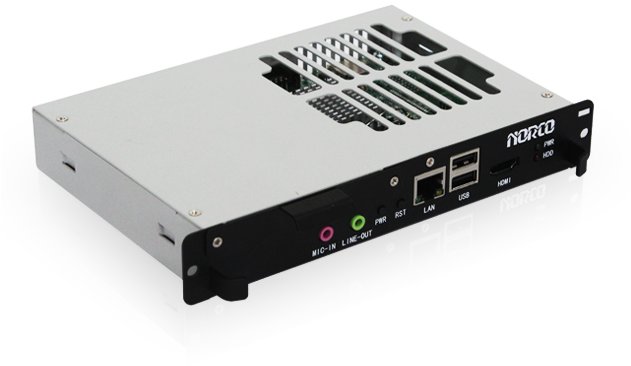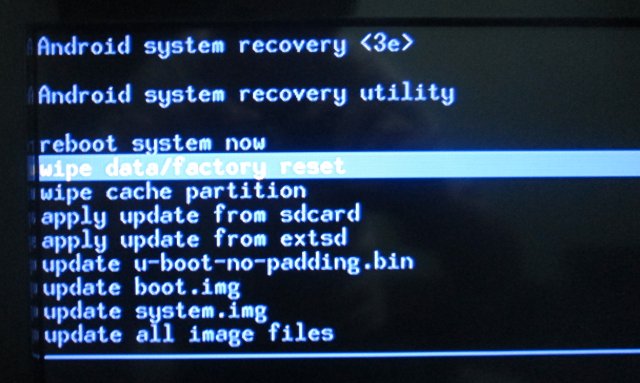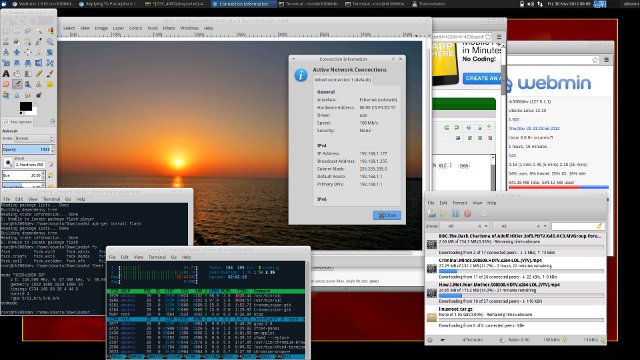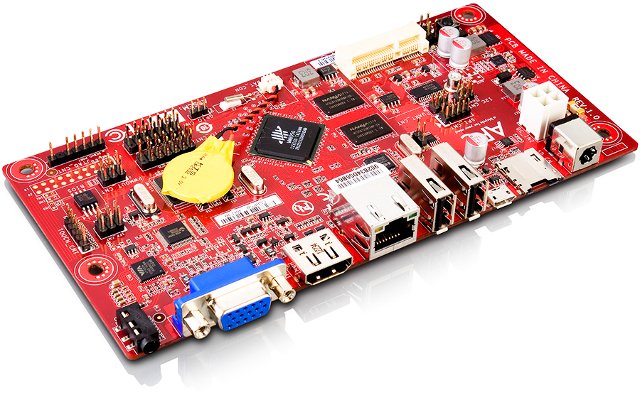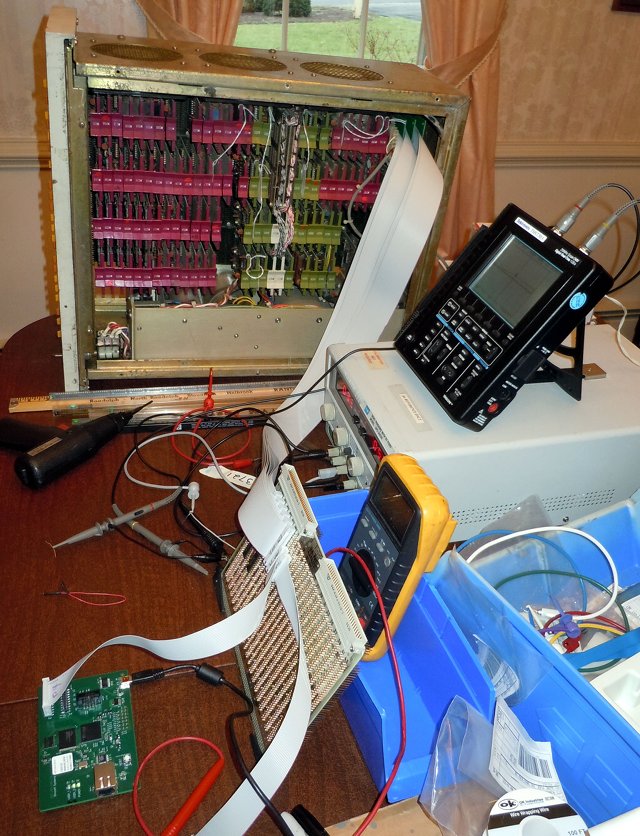Norco recently unveiled a BIS-6332A, a platform based on Freescale i.MX6 processor compliant with Intel’s Open Pluggable Specification (OPS) mainly to be used as a digital signage player, but also as a fanless Box PC, a media player, a point of sale and more. The open pluggable specification (OPS) defines mechanical and electrical characteristics so that you can easily replace a OPS compliant board or device with another compliant platform. Here are the specifications of the device: SoC – Freescale Cortex-A9 i.MX 6 series (Single-core/dual-core/ Quad Core CPUs) System Memory – Onboard 1GB/2GB DDR3 800MHz RAM Storage: 1xMicro SD 4GB/8GB iNAND flash 1x SATAII for 2.5″ HDD or SSD Video Output – 1x HDMI (front panel), 1x HDMI ( extended by OPS slot) and LVDS Connectivity: 10/100/1000Mbps LAN (Atheros AR8033) On-board USB WIFI 3G (optional) USB – 2x USB on front panel, 3x USB provided via OPS slot, one 2x5Pin USB […]
GeekBuying Releases Firmware 1.65.4 for GK802 mini PC
Geekbuying has released a new version of the firmware (1.65.4) for Zealz GK802 mini PC that fixes NTFS and Bluetooth issues, but you may instead want to use deadhp1 version which also provides root access, and fixes “this item is not compatible with your device” issue in Google Play. There are 2 files available (Deaphp1): rooted_fixed_rt-M500a_v1.65.4_20130118a_updated.7z (link down) – Firmware Update 1.65.4 (127 MB) rooted_fixed_rt-M500a_v1.65.4_20130118a_updated_FULL_IMAGE.rar (link down) – The full SD card with 1.65.4 (747 MB) Normally, you would just use the firmware update file that contains the system, boot, u-boot and recovery partition (in this release) by following those steps in a Linux or Windows PC [Update: this method does not appear to work for anybody, please scroll down to use dd / Win32DiskImager method]: Extract rooted_fixed_rt-M500a_v1.65.4_20130118a_updated.7z Copy the files to a microSD card Insert the microSD card into GK802 microSD slot. Insert the microUSB cable halfway in GK802 […]
PicUntu – Rockchip RK3066 Linux Distribution for mini PCs (UG802, MK808, …)
Many people are using RK3066 mini PCs because they currently offer the best performance to cost ratio, but until now they were mainly limited to Android Jelly Bean, although there was some preliminary port of Ubuntu available for the devices. Now, this preliminary port has become a specific Linux distribution for Rockchip RK3066 PCs-on-a-stick called PicUntu, which is based on Ubuntu 12.10, and can optionally support Xfce or Gnome desktop environments. This distribution is known to work on UG802 and MK808, but should also work on some other RK3066 mini PCs such as iMito MX1. The latest version is Picuntu 0.9 RC 2.2, and features such as WiFi, Ethernet, HDMI audio, USB webcam are known to work, What you won’t get, however, is hardware video decoding and GPU support since Rockchip does not provide the relevant binary files for Linux, but this does not seem to stop the developers from […]
GPUs Comparison: ARM Mali vs Vivante GCxxx vs PowerVR SGX vs Nvidia Geforce ULP
I’m always very confused when it comes to comparing GPUs in different SoCs, and I could not really find comparisons on the web, so I’m going to give it a try even though, as you’re going to find out, it’s actually quite a challenge. There are mainly 4 companies that provide GPUs: ARM, Imagination Technologies, Vivante and Nvidia. [Update: Two comments mentioned Qualcomm Adreno and Broadcom VideoCore are missing from the list. Maybe I’ll do an update later]. Each company offers many different versions and flavors of their GPU as summarized below. ARM Imagination Technologies Vivante Nvidia Mali-400 Series: Mali-400 MP Mali-450 MP Mali-600 Series Mali-T604 Mali-T624 Mali-T628 Mali-T658 Mali-T678 PowerVR SGX Series 5: SGX520 SGX530 SGX531 SGX535 SGX540 SGX545 PowerVR SGX Series 5XT: SGX543MP1-16 SGX544MP1-16 SGX554MP1-16 PowerVR SGX Series 6: G6200 G6230 G6400 G6430 G6600 2D graphics: GC300 GC350 3D graphics: GC400 GC800 GC1000 GC2000 GC4000 ULP GeForce (Tegra […]
HiAPAD Hi-802 mini PC Unboxing and Review
Kimdecent has just sent me one HiAPAD Hi-802 mini PC powered by Freescale i.MX6 Quad, and running Android 4.0.4 ICS. This is the first quad core HDMI TV dongle available on the market, and it can run both Android and Linux distributions such as Ubuntu since Freescale released the source code for i.MX6 processor family. Today, I’ll just show some pictures of the device, and review the device by running some tests in Android. I’ll try the Ubuntu 11.10 image release for GK802 another day. Hi-802 Unboxing I received the package by DHL within 3 days, and it includes Hi802, a 5V/2A power supply, and a USB to microUSB cable. A closer look at the device reveals an aluminum casing with lots of ventilation holes (really needed since the device gets pretty hot). Hi802 features an HDMI male connector, a microSD card slot on the side, a full USB port, […]
XBMCHUB Releases XBMC for Android Version with HW Video Decoding on All Platforms
As you may know, XBMC developers have been working on XBMC for Android for a while, and have recently released XBMC 12.0 RC3 for Android APK. The only problem is that, apart from devices based on AMLogic AML8726-M1/3, many platforms still do not support video hardware decoding, so this must be handled by software. As the CPUs in most devices are not powerful enough to decode HD videos, some people have provided instructions to use an external player, for example with Telechips TCC8925 and Diceplayer. This is not ideal because you basically lose XBMC user interface during video playback, but it’s a good workaround until XBMC 4 Android supports more platforms. However, you still need to edit some config files by yourself. That’s why the guys at XBMCHUB have decided to release an XBMC for Android APK where all the configuration is done for you, so that you can get […]
VIA Announces $79 APC Rock & $99 APC Paper Cortex A9 Board and PC
Following the launch of the $49 APC ARM11 board as a Raspberry Pi alternative last year, VIA has just announced two new APC products based on a WonderMedia WM8950 Cortex A9 processor: APC Rock – $79 Android board APC Paper – $99 Android PC with a case made of recycled cardboard Both products run Android 4.0 (ICS) and mostly share the same specifications: SoC – VIA WonderMedia WM8950 ARM Cortex-A9 @800Mhz + Mali-400 GPU System Memory – 512 DDR3 SDRAM Storage – 4GB NAND Flash + microUSB slot Video Output – HMDI (Rock & Paper) and VGA (Rock only) Audio I/O – Audio out / Mic in combo Ethernet – 10/100 Mbps USB – USB 2.0 (x2) and microUSB (OTG) 20-pin ARM-JTAG header Extra GPIO, SPI and I2C busses on a header Dimensions (Board) – 170 x 85mm (W x H), Neo-ITX Standard. APC Paper is basically the same as […]
Posibus Peripheral Emulator Powered by Emcraft SmartFusion (Cortex M3 + FPGA) Solutions
According to Wikipedia, Digital Equipment Corporation (DEC) PDP-8 was the first successful commercial minicomputer, and was introduced in March 1965. Mike Thompson, working at Rhode Island Computer Museum (RICM), has restored a PDP-8/L system that was sold between 1968 through 1971. The system can be expanded with 4K of core, a paper tape reader (PR8/L), and/or a punch (PP8/L) controller. But the tape reader is not available anymore, so Mike decided to designe a Posibus peripheral (Tape Reader) emulator using a board with an FPGA + micro-controller. The easiest way to perform this task was to get an SoC that comes with an MCU and a FPGA to avoid having to create an FPGA <-> MCU interface. This is why he chose Emcraft Linux SmartFusion Evaluation Kit featuring a Microsemi Smartfusion cSOC with a Cortex M3 core and an embedded FPGA. The whole setup is shown below. Three FlipChip interface boards […]


